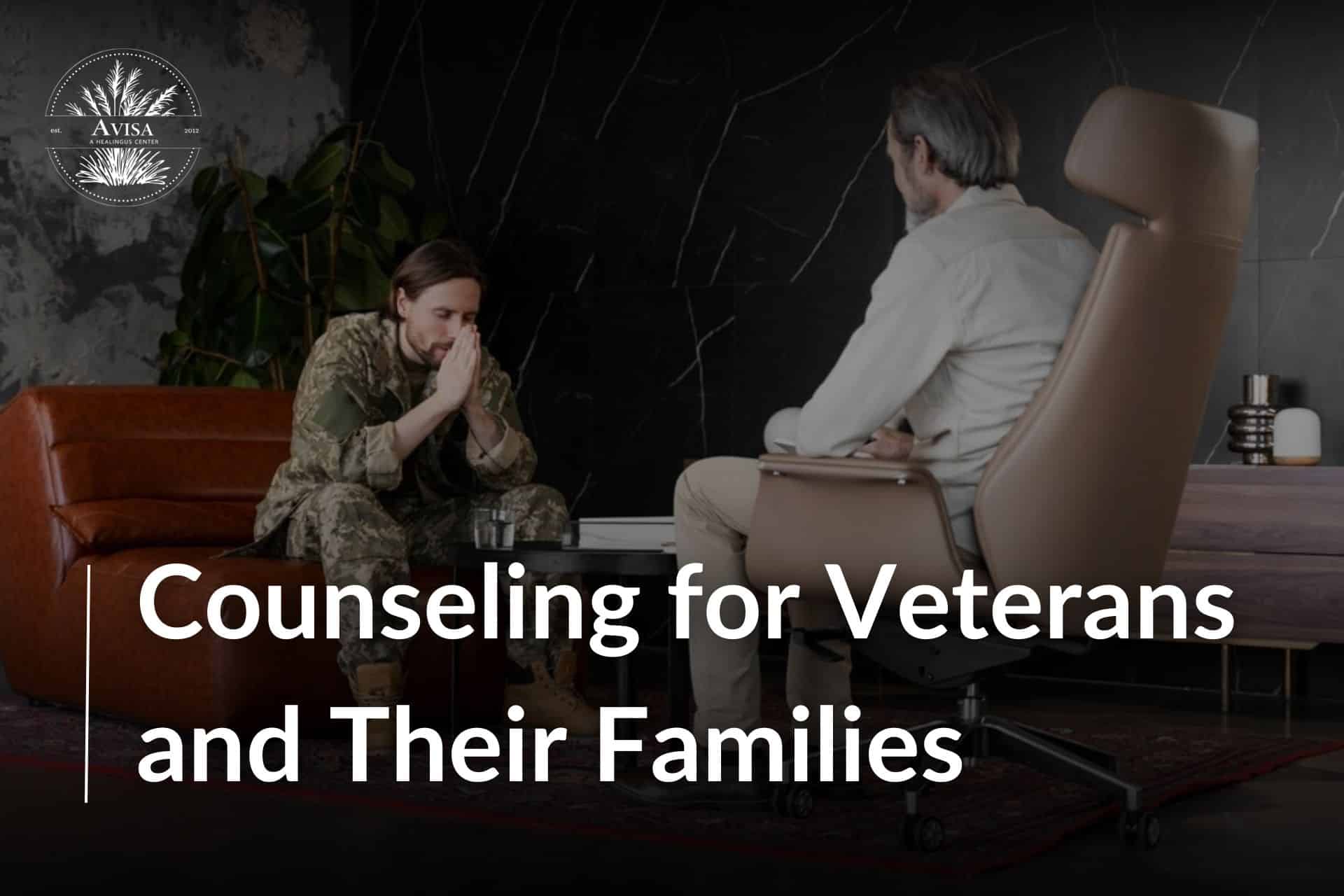Adjusting from military to civilian life presents challenges for veterans and their families. Veterans often face unique challenges, including physical injuries, psychological trauma, and the difficulties of readjusting to civilian society. The importance of counseling for veterans and their families cannot be overstated. Counseling provides a vital support system that addresses a range of issues, from PTSD and depression to relationship problems and career transitions. By offering specialized services, counselors help veterans and their families navigate these challenges and foster resilience and well-being.
Types of Counseling Services
Counseling for veterans and their families encompasses various types of services, each tailored to meet specific needs. Individual counseling focuses on personal issues such as PTSD, anxiety, and depression.
- one-on-one approach: This approach allows veterans to explore their thoughts and feelings in a safe and supportive environment.
- Group counseling: It offers the opportunity for veterans to connect with others who have had similar experiences, fostering a sense of community and shared understanding.
- Family counseling: This is another crucial service, helping families adjust to the changes that come with a loved one’s return from military service. This type of counseling addresses issues such as communication breakdowns, role adjustments, and the impact of PTSD on family dynamics.
- Marriage counseling: This specifically targets relationship issues that may arise due to prolonged separations, changes in personality or behavior, and the stress of reintegration.
- Career counseling: This counseling assists veterans in translating their military skills into civilian job opportunities, while substance abuse counseling helps those struggling with addiction issues.
Each of these services plays a critical role in supporting veterans and their families through various stages of their transition and recovery.
Integrating Technology in Counseling
In recent years, technology has significantly transformed mental health services, particularly in supporting veterans and their families. By leveraging innovative tools and platforms, counseling for veterans and their families has become more efficient, accessible, and personalized.
- Telehealth platforms: They have become increasingly popular, providing veterans with access to counseling services regardless of their location. This is particularly beneficial for those living in rural areas or those with mobility issues. Through video conferencing, veterans can receive the same level of care they would in a traditional setting, making counseling more accessible and convenient.
- Online support groups and forums: They provide a platform for veterans and their families to connect and share their experiences. These virtual communities offer peer support and reduce feelings of isolation. Mobile apps designed for mental health, such as those offering mindfulness exercises or mood tracking, empower veterans to manage their mental health proactively.
- Artificial Intelligence and machine learning: These are being used to develop personalized treatment plans and predictive analytics to identify veterans at risk of mental health crises. These technological advancements are enhancing the effectiveness of counseling for veterans and their families, ensuring they receive timely and tailored support.
Role of Counselors and Therapists
Counselors and therapists play a pivotal role in the lives of veterans and their families. They provide a compassionate and non-judgmental space where veterans can express their thoughts and emotions. By using evidence-based therapeutic techniques, such as Cognitive Behavioral Therapy (CBT) and Eye Movement Desensitization and Reprocessing (EMDR), counselors help veterans process traumatic experiences and develop coping strategies.
For families, counselors offer guidance on how to support their loved ones while also addressing their own emotional needs. They facilitate open communication and help families rebuild trust and connection. Counselors also work with children of veterans, who may struggle with behavioral issues or anxiety due to the changes in their family dynamics.
Collaborative Approaches to Veteran Care
A collaborative approach to veteran care involves multiple stakeholders working together to address the complex needs of veterans and their families. This includes healthcare providers, mental health professionals, social services, and community organizations.
- Healthcare Providers: They can work alongside mental health professionals to address both the physical and psychological aspects of a veteran’s well-being.
- Social services: It can assist with housing, employment, and financial support, which are often critical for a veteran’s successful reintegration into civilian life.
- Community organizations: They can offer additional support through recreational activities, social events, and volunteer opportunities, fostering a sense of belonging and purpose.
This collaborative model ensures that all aspects of a veteran’s life are addressed, providing a more holistic approach to their care.
Future Directions in Veterans Counseling
The field of counseling for veterans and their families is continually evolving to better meet their needs. Some of the future directions are increased use of technology, the focus on preventative care, the importance of cultural competency in counseling, and peer support in counseling programs.
Increased use of technology
The increased use of technology, such as virtual reality (VR) for exposure therapy and AI-driven mental health assessments. VR can provide immersive experiences that help veterans confront and process traumatic memories in a controlled environment, while AI can offer more accurate and personalized treatment plans.
Focus on preventative care
The focus is on preventative care, with programs designed to build resilience and coping skills before veterans encounter significant issues. This proactive approach aims to reduce the incidence of mental health problems and improve overall well-being.
Importance of cultural competency in counseling
There is a growing recognition of the importance of cultural competency in counseling. Counselors are being trained to understand and respect the unique experiences and perspectives of veterans from diverse backgrounds. This includes recognizing the impact of race, gender, and sexual orientation on a veteran’s experiences and ensuring that counseling services are inclusive and equitable.
Involvement of peer support in counseling programs.
There is an increasing emphasis on the involvement of peer support in counseling programs. Veterans often find it easier to relate to and trust those who have had similar experiences. Peer support programs can provide additional layers of understanding and encouragement, complementing the work of professional counselors.
Conclusion
Counseling for veterans and their families is an essential service that addresses the multifaceted challenges they face during and after their military service. From individual and group counseling to family and career counseling, these services play a critical role in supporting veterans’ mental health and facilitating their reintegration into civilian life. The integration of technology, collaborative care approaches, and ongoing innovations in the field are enhancing the effectiveness and accessibility of these services.
As we look to the future, it is crucial to continue developing and refining counseling services to meet the evolving needs of veterans and their families. By providing comprehensive and compassionate care, we can help veterans and their families build resilience, foster healing, and lead fulfilling lives.
Join us at Avisa in making a difference, reach out today to learn more about our counseling services for veterans and their families.
FAQs
Que: What types of counseling services are available for veterans and their families?
Ans: Counseling for veterans and their families includes individual counseling, group counseling, family counseling, marriage counseling, career counseling, and substance abuse counseling.
Que: How has technology improved counseling for veterans and their families?
Ans: Technology has made counseling more accessible through telehealth platforms, online support groups, mobile mental health apps, and the use of AI and machine learning for personalized treatment plans.
Que: What role do counselors and therapists play in supporting veterans?
Ans: Counselors and therapists provide emotional support, use therapeutic techniques to address mental health issues, facilitate family communication, advocate for resources, and collaborate with other professionals to create a comprehensive support network.
Que: Why is a collaborative approach important in veteran care?
Ans: A collaborative approach ensures that all aspects of a veteran’s life are addressed, integrating healthcare, mental health services, social services, and community support for a holistic care model.
Que: What are the future directions in veterans counseling?
Ans: Future directions include increased use of technology like VR and AI, a focus on preventative care, cultural competency training, and the involvement of peer support programs.
Que: How can family members benefit from counseling?
Ans: Family counseling helps family members adjust to changes, improve communication, rebuild trust, and support their loved one’s mental health journey.
Que: Are there specific programs for children of veterans?
Ans: Yes, counselors work with children of veterans to address behavioral issues, anxiety, and the impact of family dynamics changes, providing tailored support to meet their unique needs.
By addressing these common questions and concerns, we hope to shed light on the critical role of counseling for veterans and their families, and the positive impact it can have on their lives.










